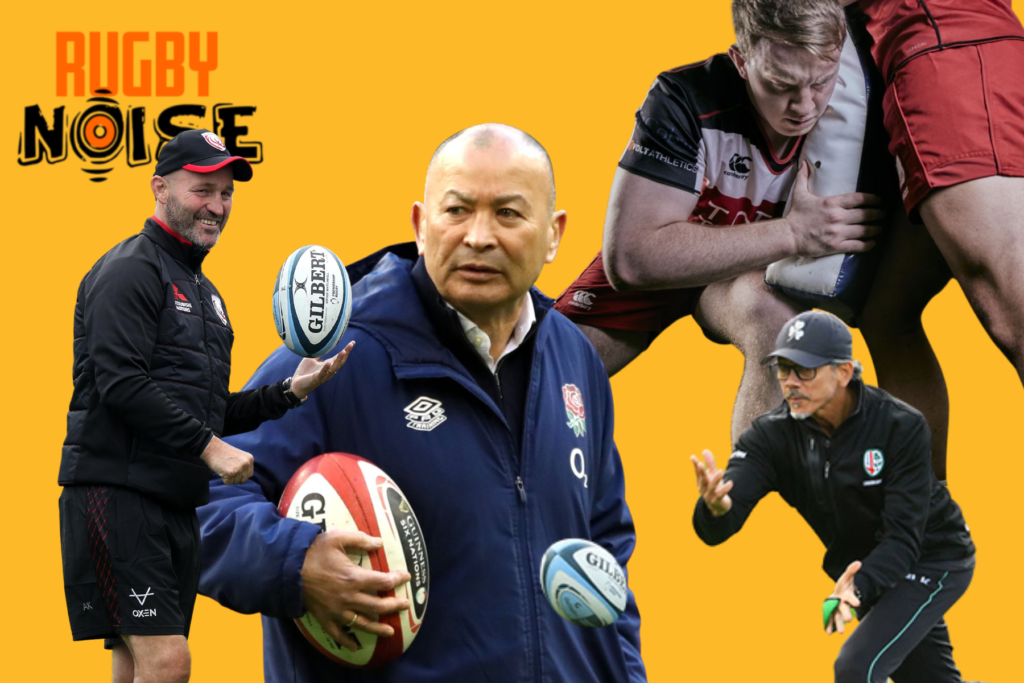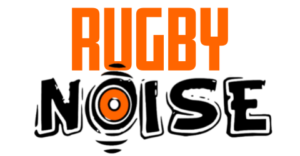You may not see them quite as much as players, but rugby coaches are as important if not more so than any one player. There are lots of things that rugby coaches do.
What do Rugby coaches do? Rugby coaches will develop the tactics for the game, lead
training, decide the starting team and usually help in the decision on signings for the team.

Rugby coaching is a very complicated and difficult job with a lot of diverse responsibilities. You might not see a lot of the things that rugby coaches do as much of this will be during training, with coaches really limited on what they can do to impact the game when the time comes.
So what it is that a rugby coach does?
1. Coach the Players
It may seem silly, but the first job of any rugby coach is to coach and develop their players. No matter what level of coach you are, your primary job will be to make the players you are coaching better. Most of this is done through training during the week.
As a coach, you should have good skill knowledge, particularly on the position that you are coaching. For example, a backs coach will be focused on his group getting faster, better at passing and better at tackling in space. As a coach, you should hold the knowledge that helps these players get better in their specific position.
While the positional coaches will be more focused on the skills of the group they are working with, the head coach should still be focused on improving the players in their team. They will do this through organising structured and purposeful training sessions that will make every player on the team better.
Any level of coach should also be a helpful voice for any player and be able to answer players’ questions on the game and much more.
2. Preparing the players for games
While training is very important, coaches need to be aware that all of this is in preparation for a game or tournament. So while you want to push the players to the best of their ability, rest and recovery is very important. Coaches need to find the balance between pushing players hard in training and giving them enough time to recover and be fully prepared for the game.
Preparing players for the game is about more than just the physical side of the game. Tactics are really underrated in rugby and we don’t always see the preparation that goes into the mental side of the game. Coaches need to be able to identify the weaknesses in their opposition and plan to exploit them.
Once these weaknesses have been identified, coaches should share the information with the players and the tactics that are being developed by the coach should take advantage of those weaknesses. There will be specific moves and tactics that teams put in against certain teams. This game plan needs to be clearly communicated to the players otherwise it will cause chaos during the game.
3. Help to build the team
One of the massive responsibilities that will usually be done by the head coach with the help of coaches is building the team. This is done by signings, academy promotions and deciding when players should leave. It is one of the most important things that a rugby coach can do.
This is the job that does still happen during the season but is mainly done during the summer. At this time, coaches need to make some really big decisions. The first decision is often whether to renew the contracts of existing players. Coaches need to decide whether the contract will be worth the money and whether there are alternatives.
Looking at those alternatives is usually something done during the season. Coaches will need to plan months in advance as often players will sign pre-contract agreements more than six months before leaving a side. It is why coaches are constantly looking at recruitment even during the season.
This recruitment will not always be looking at players from other teams when they are looking for additions to the team. Coaches also need to be very careful in developing and promoting players up through the academy system. Managing a player’s progression is very important.
If a young player is pushed into the first team too quickly, it can really hurt their development and they will struggle to establish themselves. On the other side, teams can have a big boost when a player comes up through the academy and shines. It is a much cheaper way of developing a great team.
While it is always important for a team to get the very best players they can into their squad, chemistry and balance are also incredibly important. If you get this wrong, the team can be a complete mess no matter the talent in the team.
This building of the team is even more important for international coaches. As players rarely play together in international rugby, creating the right team is much more difficult. International coaches will often be seen at domestic games, scouting which players will be in their international squads.
What makes a good rugby coach?
It is not really easy to determine exactly what makes a really good rugby coach. There are lots of intangibles that you would say make a very good rugby coach. The first is a pretty simple one. The dedication and time that is put into the game means you need to love the sport of rugby and you need to be fine with putting all of your time into it.
Rugby coaches need to be very knowledgeable on the game and able to answer pretty much any question that a player has. Coaches need to understand the safety impact of rugby and need to manage their players appropriately. If they do not do this it can put players at risk. A good coach also needs to be approachable and understand the players. They need to know what motivates the players so that they can really get them going for games.
